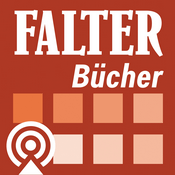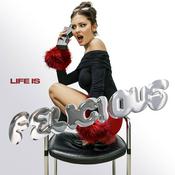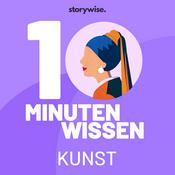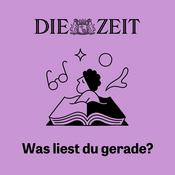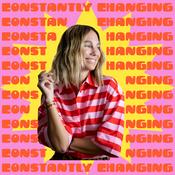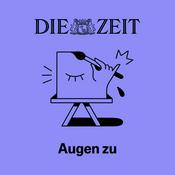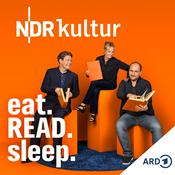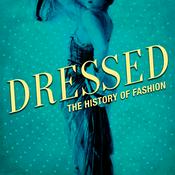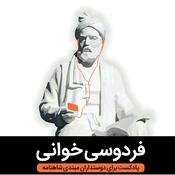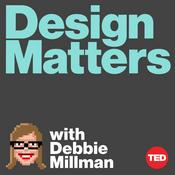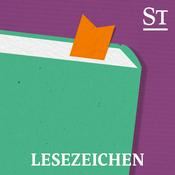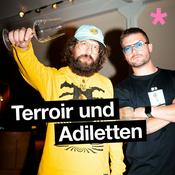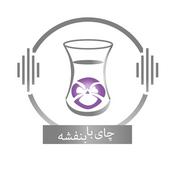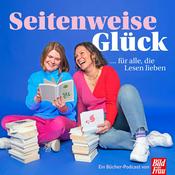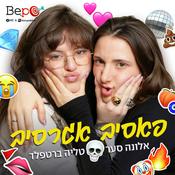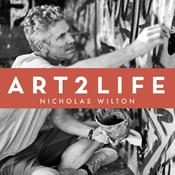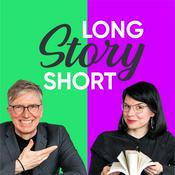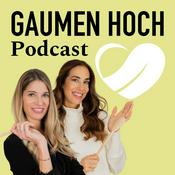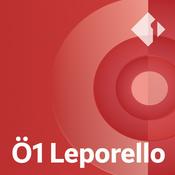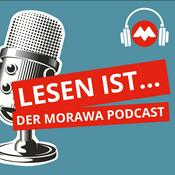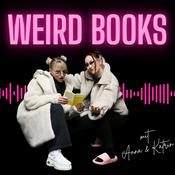Books & Writers · The Creative Process: Novelists, Screenwriters, Playwrights, Poets, Non-fiction Writers & Journalists Talk Writing, Life & Creativity
Novelists, Screenwriters, Playwrights, Poets, Non-fiction Writers & Journalists Talk Writing · Creative Process Original Series
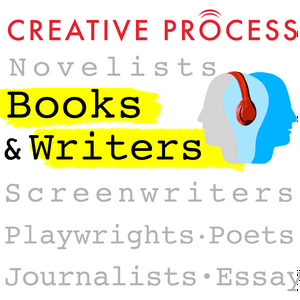
Neueste Episode
355 Episoden
The Wisdom of Nature: Artists & Scientists on The Beauty & Fragility of Our Planet
09.1.2026 | 17 Min.In this special edition, we hear from our guests from across the arts and sciences. From composers and poets to forest ecologists and climate envoys, they tell the story of our planet. Moving beyond the data of destruction, we explore the intelligence of nature, the ethics of what we eat, and the empathy required to save our future.
MAX RICHTER, Composer, Sleep, The Blue Notebooks
CARL SAFINA, Author, Becoming Wild
ADA LIMÓN, 24th US Poet Laureate
CYNTHIA DANIELS, Grammy Award-winning Sound Eng.
SUZANNE SIMARD, Finding the Mother Tree
JOELLE GERGIS, Lead Author, IPCC 6th Assessment Rpt
NOAH WILSON-RICH, CEO, Best Bees Company
INGRID NEWKIRK, PETA Founder
BERTRAND PICCARD, Solar Impulse Foundation
DAVID FARRIER, Author, Footprints
KATHLEEN ROGERS, Pres, Earth Day Network
ODED GALOR, Unified Growth Theory
PETER SINGER, Philosopher
GEOFF MULGAN, Another World Is Possible
CLAIRE POTTER, Welcome to the Circular Economy
CHRIS FUNK, Dir. Climate Hazards Car.
JENNIFER MORGAN, Special Envoy, International Climate Action
To hear more from each guest, listen to their full interviews.
Episode WebsiteSpeaking Out of Place - DAVID PALUMBO-LIU on Reclaiming Our Political Voices - Highlights
27.12.2025 | 11 Min.On the urgent need to reclaim our political voices, the forces that silence dissent, and how art and poetry are crucial tools for survival
Our guest today is an activist scholar who believes the classroom is inseparable from the public square. David Palumbo-Liu is the Louise Hewlett Nixon Professor of Comparative Literature at Stanford University and a founding faculty member of Stanford’s Program in Comparative Studies in Race and Ethnicity. But his work has long reached beyond the academy. Through his book, Speaking Out of Place: Getting Our Political Voices Back, and his podcast of the same name, he insists that the great global crises of our time—from escalating wars and democratic failures to environmental collapse—are fundamentally crises of value and voice. His recent work has put him on the front lines of campus activism, challenging institutions, resigning his membership from the MLA, a move that highlights the ethical cost of speaking truth to power. We’ll talk about what he calls the "carceral logic" of the modern university, why art and poetry are crucial tools for survival in times of war, and what he tells his students about preparing for a future defined by uncertainty. His perspective is rooted in literature, but his urgency is all about the world we live in now. We will discuss the forces that silence dissent, the "imperial logic" of AI, and what it means to be a moral, active citizen when the systems we rely on are failing.
“There is a dispute about what the American Dream is or how it would play out in different circumstances. The American dream has essentially been narrowed into a white Christian nationalist notion of things so that everything that falls outside what they imagine that to be is not only undesirable, but should be the subject of extermination, deportation, and detention. I am heartened by the fact that more of our 'better angels' are emerging with a more capacious and expansive notion of what the American dream could be.”
Episode Website
www.creativeprocess.info/pod
Instagram:@creativeprocesspodcastReclaiming the American Dream with DAVID PALUMBO-LIU – Stanford Professor, Author & Host, Speaking Out of Place
27.12.2025 | 1 Std. 6 Min.On the urgent need to reclaim our political voices, the forces that silence dissent, and how art and poetry are crucial tools for survival
“There is a dispute about what the American Dream is or how it would play out in different circumstances. The American dream has essentially been narrowed into a white Christian nationalist notion of things so that everything that falls outside what they imagine that to be is not only undesirable, but should be the subject of extermination, deportation, and detention. I am heartened by the fact that more of our 'better angels' are emerging with a more capacious and expansive notion of what the American dream could be.”
Our guest today is an activist scholar who believes the classroom is inseparable from the public square. David Palumbo-Liu is the Louise Hewlett Nixon Professor of Comparative Literature at Stanford University and a founding faculty member of Stanford’s Program in Comparative Studies in Race and Ethnicity. But his work has long reached beyond the academy. Through his book, Speaking Out of Place: Getting Our Political Voices Back, and his podcast of the same name, he insists that the great global crises of our time—from escalating wars and democratic failures to environmental collapse—are fundamentally crises of value and voice.
His recent work has put him on the front lines of campus activism, challenging institutions, resigning his membership from the MLA, a move that highlights the ethical cost of speaking truth to power. We’ll talk about what he calls the "carceral logic" of the modern university, why art and poetry are crucial tools for survival in times of war, and what he tells his students about preparing for a future defined by uncertainty. His perspective is rooted in literature, but his urgency is all about the world we live in now. We will discuss the forces that silence dissent, the "imperial logic" of AI, and what it means to be a moral, active citizen when the systems we rely on are failing.
Episode Website
www.creativeprocess.info/pod
Instagram:@creativeprocesspodcast- How do writers develop their voice, showing us what is important in life?
ADA LIMÓN (24th U.S. Poet Laureate, Startlement, The Carrying) explains that her poetry begins with a bodily sensation or curiosity, not an idea. She values the space and breath poetry offers for unknowing and mystery, finding solace in the making and the mess, not in answers. She discusses being free on the page to be her whole, authentic, complicated self.
JAY PARINI (Author, Filmmaker, Borges and Me) calls poetry the prince of literary arts—language refined to its apex of memorability. He recounts how his road trip with Borges around Scotland restored him from depression and anxiety following the Vietnam War death of his friend.
JERICHO BROWN (Pulitzer Prize-winning Poet, The Tradition, How We Do It: Black Writers on Craft, Practice, and Skill) discusses the rhythm of black vernacular and capturing "symphonic complexity of black life". He shares how he’s found a way not to think about personal risk as he’s writing.
ADAM MOSS (Fmr. Editor, New York Magazine; Author, The Work of Art) relates David Simon’s concept of the bounce, in which creativity gains momentum as it is passed between people.
VIET THANH NGUYEN (Pulitzer Prize-winning Author, The Sympathizer; To Save and to Destroy) discusses his path to expansive solidarity and capacious grief and how it works against the state's power to divide and conquer. He emphasizes that literature is crucial because authoritarian regimes abuse language; a commitment to the beauty of language is a commitment to truth, and fear is often an indicator of a truth that needs to be spoken.
To hear more from each guest, listen to their full interviews.
Episode Website
www.creativeprocess.info/pod
Instagram:@creativeprocesspodcast - How can we use negative spaces in fiction to engage with readers’ imaginations? How are memory and trauma passed onto us through language? How do we become more than the stories we tell ourselves?
KATIE KITAMURA (Author, Audition, Intimacies) emphasizes that a book is created in collaboration with the reader, using negative spaces in the narrative structure to allow for reader interpretation, paralleling the space between audience and actor in performance.
PAUL LYNCH (Booker Prize-winning Novelist, Prophet Song) discusses the richness and slipperiness of the English language in Ireland, shaped by the overlay of English onto Irish grammatical constructions, resulting in unique phrasing and a capacity to create new constructions.
DANIEL PEARLE (Screenwriter, Playwright, The Beast in Me) shares that audiences are fascinated by the unfettered, uncensored ID in characters, reflecting the universal fantasy of acting without consequences. He advises writers to put people who deeply irritate them into a play, as those characters often become the audience's favorites.
HALA ALYAN (Novelist, Poet, I’ll Tell You When I’m Home: A Memoir) describes her work as an excavation of the darkest hours and intergenerational trauma carried by her lineage, which has endured repeated exile. She links exile from the body to the larger patterns of not having a place in the world.
T.C. BOYLE(Novelist, Short Story Writer, Environmentalist) shares that the creative process involves a magic in reaching for the unconscious and the surprise of the creative process. He emphasizes that art and nature are our salvations, over money. He advocates for solitude in nature—alone on a beach or in the woods—to connect with the natural world.
ADAM ALTER (Author of Anatomy of a Breakthrough) discusses the axioms of creativity, noting that being around more people, even those who are "deeply incompetent," is generally beneficial for creativity by providing diversity of opinion and information, preceding the necessary time for solitary focus.
SHEHAN KARUNATILAKA (Booker Prize-winning Author of The Seven Moons of Maali Almeida) explains his decision to write in the second person as a way of exploring the spiritual dimension of the internal voice. He posits that the "you" could be a spirit whispering thoughts, leading people (and nations) astray.
DANIEL HANDLER A.K.A LEMONY SNICKET (Author, A Series of Unfortunate Events) argues that his books for children and adults are not fundamentally different and says everyone's childhood is full of powerful emotions derived from ordinary injustices, noting that we cry hardest over hurt feelings, not global catastrophes.
ADA LIMÓN (24th U.S. Poet Laureate, Startlement, The Carrying) talks about her responsibility as a writer to honor her ancestors, specifically her grandfather, who had to sublimate his creative spirit for safety and belonging, leading her to prioritize grace and freedom in her own writing.
To hear more from each guest, listen to their full interviews.
Episode Website
www.creativeprocess.info/pod
Instagram:@creativeprocesspodcast
Weitere Kunst Podcasts
Trending Kunst Podcasts
Über Books & Writers · The Creative Process: Novelists, Screenwriters, Playwrights, Poets, Non-fiction Writers & Journalists Talk Writing, Life & Creativity
Books & Writing episodes of the popular The Creative Process podcast. To listen to ALL arts & creativity episodes of “The Creative Process · Arts, Culture & Society”, you’ll find our main podcast on Apple: tinyurl.com/thecreativepod, Spotify: tinyurl.com/thecreativespotify, or wherever you get your podcasts!
Exploring the fascinating minds of creative people. Conversations with writers, artists & creative thinkers across the Arts & STEM. We discuss their life, work & artistic practice. Winners of Pulitzer, Oscar, Emmy, Tony, leaders & public figures share real experiences & offer valuable insights. Notable guests include: Neil Gaiman, Roxane Gay, George Pelecanos, George Saunders, Viet Thanh Nguyen, Jericho Brown, Joyce Carol Oates, Hilary Mantel, Daniel Handler a.k.a. Lemony Snicket, Siri Hustvedt, Jeffrey Sachs, Jeffrey Rosen (National Constitution Center), Tom Perrotta, Ioannis Trohopoulos (UNESCO World Book Capital), Ana Castillo, David Tomas Martinez, Rebecca Walker, Isabel Allende, Ian Buruma, Aimee Nezhukumatathil, Ada Limon, John d’Agata, Rick Moody, Paul Auster, Robert Olen Butler, Yiyun Li, Rob Nixon, Tobias Wolff, Yann Martel, Junot Díaz, Edna O’Brien, Eimear McBride, Jung Chang, Jane Smiley, Marge Piercy, Maxine Hong Kingston, Sara Paretsky, Carmen Maria Machado, Neil Patrick Harris, Jay McInerney, Etgar Keret, DBC Pierre, Adam Alter, Janet Burroway, Geoff Dyer, Jenny Bhatt, Hala Alyan, E.J. Koh, Jeannie Vanasco, Lan Samantha Chang (Iowa Writers Workshop), Alice Fulton, Alice Notley, McKenzie Funk, Emma Walton Hamilton, Krys Lee, Douglas Kennedy, Sam Lipsyte, Charles Baxter, Azby Brown, G. Samantha Rosenthal, Ashley Dawson, Douglas Wolk, Suzanne Simard, Seth Siegel, Richard Wolff, Todd Miller, Giulio Boccaletti, Amy Aniobi, among others.
The interviews are hosted by founder and creative educator Mia Funk with the participation of students, universities, and collaborators from around the world. These conversations are also part of our traveling exhibition.
www.creativeprocess.info
For The Creative Process podcasts from Seasons 1 & 2, visit: tinyurl.com/creativepod or creativeprocess.info/interviews-page-1, which has our complete directory of interviews, transcripts, artworks, and details about ways to get involved.
Podcast-WebsiteHöre Books & Writers · The Creative Process: Novelists, Screenwriters, Playwrights, Poets, Non-fiction Writers & Journalists Talk Writing, Life & Creativity, 99% Invisible und viele andere Podcasts aus aller Welt mit der radio.at-App

Hol dir die kostenlose radio.at App
- Sender und Podcasts favorisieren
- Streamen via Wifi oder Bluetooth
- Unterstützt Carplay & Android Auto
- viele weitere App Funktionen
Hol dir die kostenlose radio.at App
- Sender und Podcasts favorisieren
- Streamen via Wifi oder Bluetooth
- Unterstützt Carplay & Android Auto
- viele weitere App Funktionen


Books & Writers · The Creative Process: Novelists, Screenwriters, Playwrights, Poets, Non-fiction Writers & Journalists Talk Writing, Life & Creativity
Code scannen,
App laden,
loshören.
App laden,
loshören.


